Here’s an insider’s look at some of the most anticipated upcoming releases for discerning film enthusiasts and dedicated collectors alike, set to enhance home cinema libraries with stunning new restorations and comprehensive bonus features.
Umbrella Entertainment’s Landmark 4K Restoration of “Wake in Fright”
Kicking off with genuinely thrilling news for aficionados of cult cinema, the renowned Australian label Umbrella Entertainment has officially unveiled plans for a groundbreaking new 4K restoration of the iconic Australian exploitation classic, Wake in Fright.
For those intimately familiar with the intricate world of film restoration, the saga behind this particular film is nothing short of legendary. Following its premiere at the prestigious Cannes Film Festival, Wake in Fright enjoyed a brief, limited theatrical run in select territories before seemingly vanishing without a trace. The widely accepted belief was that all original film elements had been irrevocably lost after the initial production company faced bankruptcy.
The painstaking search for the film’s elusive materials took a pivotal turn in 2002, thanks to the relentless efforts of the film’s own editor, Anthony Buckley. He miraculously tracked down approximately sixty reels of film within the archives of CBS. These reels were, astonishingly, marked for destruction, but upon closer inspection, they were revealed to be the meticulously edited and printed materials originally prepared for television screenings.
Undeterred, Buckley’s quest continued, leading him to another film storage facility. There, the warehouse manager grimly suggested that any remaining film elements were most probably destined for the trash. In an astonishing stroke of luck, the original camera negatives were indeed discovered amidst the discarded materials! By 2004, a remarkable total of 263 reels, critically including the film’s original camera negatives, were safely transported to the National Film and Sound Archive of Australia for permanent preservation.
Without the editor’s fervent and meticulous search through these archives, an immeasurable amount of original and vital material would have been lost forever. Post-restoration, the film was granted a highly anticipated re-screening at the Cannes Film Festival in 2009, featured as part of the esteemed Cannes Classics selection. Despite nearly four decades having passed since its debut, reports indicated a significant number of viewers still found the film’s disturbing content too visceral to bear, leading many to walk out. This 2009 restoration, while bringing the film back into public discourse, also inadvertently ignited a substantial debate among film enthusiasts regarding the quality and philosophy of film restoration itself, making it one of the earliest high-profile cases to do so.
The 2009 restoration faced considerable criticism, primarily for its aggressive and almost complete removal of film grain, which resulted in an unnervingly smooth image severely lacking in fine detail. Beyond the evident Digital Noise Reduction (DNR) processing, the color grading in this version was also widely deemed unnatural in numerous scenes. A reviewer from Blu-ray.com even directly interviewed the film’s director during its US Blu-ray release, specifically inquiring about these contentious restoration issues, yet a definitive answer remained elusive.
Now, over a decade later, Umbrella Entertainment is gallantly embarking on a complete re-restoration of this film with such a storied history. Their precise objective is to rectify the problematic aspects of the 2009 version, aiming to faithfully restore the intended gritty aesthetics and the authentic, sun-baked color palette envisioned by the director. The pervasive green tint that marred the previous restoration has been meticulously corrected, and, crucially, the film grain has been fully preserved. This exciting new 4K restoration will be released in the cutting-edge UHD format, presenting the image sourced directly from the original negatives in glorious Dolby Vision with HDR10 compatibility. Furthermore, the release is set to include an unprecedented wealth of new bonus content.
Some of this highly anticipated new material includes an insightful commentary track by Peter Galvin, author of a comprehensive book detailing the film’s behind-the-scenes narrative; a captivating new 50-minute documentary dedicated to the arduous search for the film’s original shooting locations; an engaging interview with the film’s cinematographer, Brian West; the complete, unfiltered interview with actor Jack Thompson, originally recorded for the acclaimed documentary Not Quite Hollywood; an interview with celebrated film critic Kim Newman, offering an illuminating perspective on the career of actor Donald Pleasence; a compelling conversation between filmmakers Philippe Mora and Paul Harris discussing the film; separate audio interviews featuring director Ted Kotcheff and composer John Scott; a curated collection of classic Australian film trailers; and, as an exceptional extra feature, the inclusion of the film’s producer’s 1972 Australian comedy, Sunstruck. In addition to this immense wealth of fresh content, all the valuable bonus features from previous releases have been thoughtfully retained. These include a commentary track by director Ted Kotcheff and editor Anthony Buckley; a 2008 interview with the director; a Q&A session with the director held at the 2009 Toronto International Film Festival; extra footage from the North American release version; a program detailing the film’s remarkable rediscovery and restoration journey; and a 1971 television program shedding light on the film’s original production. This comprehensive release, powered by its pristine new 4K restoration, promises to present Wake in Fright in its truly proper and intended form, finally correcting the “incorrect restoration” of the past. One can only hope that more films marred by flawed restorations will be afforded such a transformative second chance.
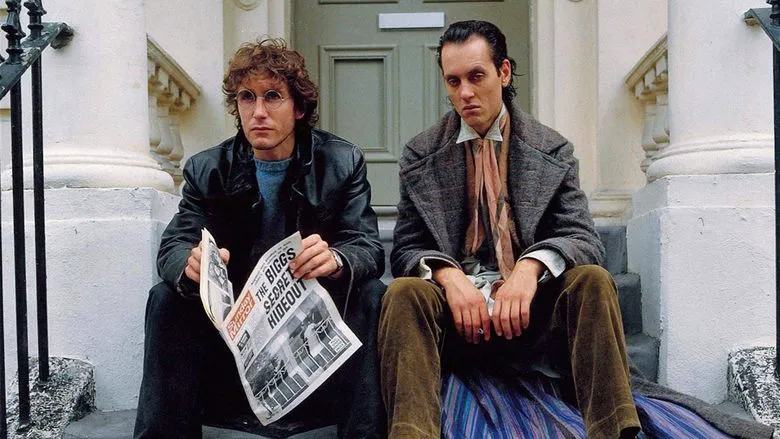
The Criterion Collection: Elevating Cinematic Art
Now, let’s pivot to the always highly anticipated latest offerings from the esteemed Criterion Collection, consistently a beacon for cinephiles seeking definitive home video presentations of cinematic masterpieces.
Richard Lester’s Musketeers Double Feature (1973 & 1974)
Criterion is set to launch this month’s releases with an exceptional double-feature UHD set: Richard Lester’s flamboyant epics, The Three Musketeers (1973) and The Four Musketeers (1974). This project itself boasts a fascinating and tumultuous history. Originally conceived with the notion of starring members of The Beatles, that iteration of the project ultimately fell through. However, Richard Lester, widely celebrated for his direction of The Beatles’ iconic film A Hard Day’s Night, remained at the helm.
The production was notoriously plagued by a spate of accidents, with many actors sustaining injuries, some quite severe. After what proved to be an arduous and challenging shoot, producers made the controversial decision to cleave what was originally intended as one grand, epic film into two distinct parts, subsequently releasing them separately. This unilateral decision ignited a major uproar, as all cast and crew members had signed contracts and received payment based on the premise of a single film. This legal dispute ultimately prompted the Screen Actors Guild to formulate entirely new regulations, specifically designed to prevent this practice of creating multiple films from a single block of footage, now mandating that contracts explicitly specify the precise number of films being made.
Despite the profound behind-the-scenes tribulations, the collective final product is, by most accounts, remarkably entertaining and well-executed. Richard Lester’s distinctive playful and anarchic approach to filmmaking is palpably evident in both features, rendering them surprisingly fresh and entertaining even today. Both films have recently been subjects of a meticulous 4K restoration by StudioCanal, and this impressive restoration was subsequently released on UHD in the UK in 2023 as part of their acclaimed classic restoration series. Criterion has judiciously licensed this restoration, and will present it in breathtaking Dolby Vision with HDR10 compatibility. The audio track retains the original lossless mono, a purist choice, though it’s worth noting that the UK release was plagued by pitch issues, with many viewers reporting the audio as being noticeably too high. In a move that exemplifies their commitment to quality, Criterion will meticulously reprocess the audio to restore it to its accurate and original pitch. The bonus features include the extensive 50-minute behind-the-scenes documentary from the old release, along with a 7-minute promotional featurette from 1973. In an exciting addition, Criterion has commissioned film critic David Cairns to create a brand-new, in-depth documentary chronicling the fascinating making-of story for both films, thoughtfully presented in four parts totaling an impressive two and a half hours.
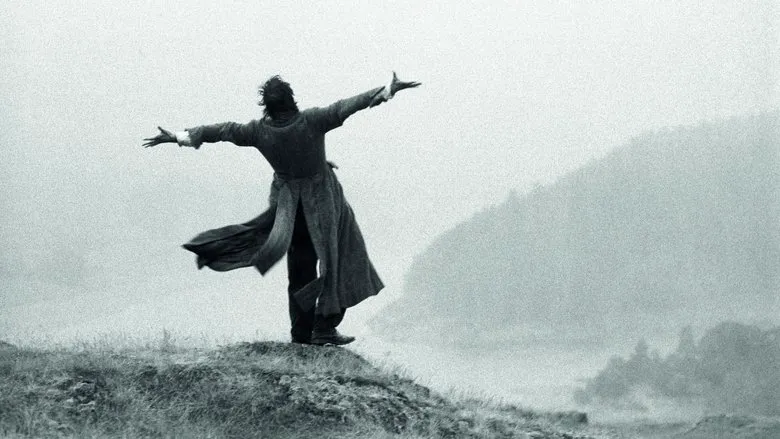
Jacques Demy’s The Umbrellas of Cherbourg (1964)
Another major forthcoming UHD release this month is Jacques Demy’s enchanting 1964 musical masterpiece, The Umbrellas of Cherbourg. The film, renowned for its visually arresting and vibrant use of color, is set to be exquisitely revitalized with a stunning new 4K restoration. Criterion’s UHD release is faithfully sourced from this new restoration. However, it is an unfortunate detail that, as the restoration was completed entirely in SDR (Standard Dynamic Range), Criterion will not be performing any further HDR processing. In addition to the original lossless mono audio track, the 4K restoration process yielded an unexpected and delightful discovery: a previously unknown three-track stereo source containing all of the film’s iconic music and dialogue. Utilizing this newly unearthed audio source, in conjunction with an original sound effects track, the dedicated restoration team has meticulously crafted a brand-new 5.0 audio track, composed solely of original sound elements. Aside from this debut 4K restoration in UHD, the bonus features included are familiar, identical to those generously featured in the previous Demy box set, offering a rich collection of documentaries, insightful interviews, vintage television programs, and a 2013 2K restoration featurette.
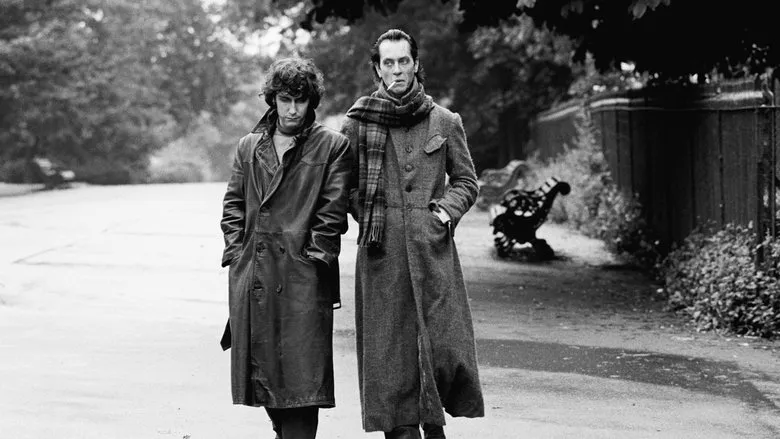
In the Heat of the Night (Norman Jewison, 1967) UHD Upgrade
Adding to its impressive lineup, Criterion is also releasing a UHD upgrade of Norman Jewison’s seminal 1967 film, In the Heat of the Night. This classic crime drama, a powerful exploration of racial discrimination, was initially released by Criterion in 2019 as a 4K-restored Blu-ray. Subsequently, Kino Lorber shrewdly leveraged a copyright loophole to acquire the UHD distribution rights from MGM for North America, releasing their own UHD in 2022. Kino’s release notably included the film’s compelling 1970 sequel, They Call Me Mister Tibbs!, and the 1971 third installment, The Organization, both presented in high definition as valuable bonus features. In terms of sheer scope and complementarity, the Kino Lorber release paired exceptionally well with the existing Criterion Blu-ray, leading many viewers who had already purchased the Criterion Blu-ray to also acquire the Kino Lorber UHD. However, Kino Lorber’s licenses for many MGM films have gradually expired, and in this instance, the UHD rights have reverted back to Criterion, who is now undertaking the ambitious task of upgrading and re-releasing the film themselves. Regrettably, this particular Criterion re-release appears to lack significant competitive edge. The 4K restoration is still presented in SDR (Standard Dynamic Range), identical to their prior Blu-ray, and the exclusive content additions are limited to a modest selection of additional bonus features. For viewers who already possess the superior Kino Lorber version, this new Criterion release may hold minimal appeal. Perhaps it would be wise to await the rumored Arrow Video version, which might potentially restore and release the sequels as an expansive UHD box set, offering a more complete series experience.
Killer of Sheep (Charles Burnett, 1978) - A Welcome Surprise UHD
The next UHD release from Criterion comes as a truly delightful surprise: Charles Burnett’s profoundly impactful 1978 film, Killer of Sheep. This groundbreaking independent film, which vividly depicts the understated daily lives of Black working-class individuals in the slums of Los Angeles, is widely regarded as an unparalleled masterpiece of its kind, emblematic of independent American cinema. Criterion’s audacious decision to release such a low-budget, deeply personal independent film in the prestigious UHD format underscores its undeniable and significant place in cinematic history. The film is sourced from a meticulous 4K restoration, directly supervised by the director himself, maintaining an original lossless mono audio track, and presented in its authentically restored SDR appearance. The bonus features are extensive and thoughtfully curated, including an insightful old commentary track by director Charles Burnett and esteemed film scholar Richard Peña; a brand-new interview with director and the film’s star, Henry G. Sanders; a fresh appreciation of the film offered by Moonlight director Barry Jenkins; excerpts from a profound interview with Charles Burnett from the “L.A. Rebellion Oral History Project,” meticulously organized by UCLA in 2010; a heartwarming 2007 cast reunion featurette; a captivating 2019 documentary created by Robert Townsend for the Criterion Channel, titled Walking with Charles Burnett; and, further enriching the package, two of Burnett’s early short films: Several Friends from 1969 and The Horse from 1970, the latter of which will also feature a new introduction by the director. It remains an open question whether Criterion will ultimately upgrade and re-release another notable Charles Burnett film, To Sleep with Anger, initially released by them in 2019, as a future UHD offering.

Bruce Robinson’s Cult Classics: Withnail & I (1987) & How to Get Ahead in Advertising (1989)
Next, the Criterion Collection casts a focused spotlight on the distinctive work of British director Bruce Robinson, with two highly anticipated releases. The first is the enduring 1987 classic comedy, Withnail & I. This darkly humorous and semi-autobiographical film has, over the years, ascended to the status of a bona fide cult classic within British comedy, amassing a large and fiercely dedicated fan base. The film was first released by Arrow Video in 2014 as a meticulously 2K-restored Blu-ray box set, and has since been impressively upgraded to UHD ten years later in 2024. Criterion is also joining this celebration by releasing the film on UHD. Intriguingly, both the Arrow Video and Criterion releases utilize cover designs that draw from the original theatrical release materials, eloquently demonstrating the enduring appeal and iconic status of the original poster design. Criterion’s UHD also leverages the high-quality 4K restoration masterfully created by Arrow Video, presented in stunning Dolby Vision with HDR10 compatibility. The audio track strictly includes the original lossless mono track, preserving its intended aural integrity. In terms of bonus features, Criterion’s content selection diverges thoughtfully from Arrow Video’s. Both releases commendably include two essential commentary tracks: one by director Bruce Robinson himself, and another featuring the insightful perspectives of actors Ralph Brown and Paul McGann. However, of the four documentaries produced by the UK’s Channel Four included on the Arrow Video release,Criterion’s release selectively includes only one, specifically focusing on the making of the film, titled Withnail & I: We Don’t Want The House. For the remaining content, Criterion has chosen to produce a new, exclusive program featuring interviews with director Bruce Robinson and actor Richard E. Grant, and has also included a poignant Q&A session with the two legends held at the BFI in 2017.
The adjacent release is the same director’s eccentric and darkly comedic 1989 film, How to Get Ahead in Advertising. This film employs a bizarre fantasy premise to deliver a uniquely biting satire of the television and advertising industries. This film was initially included as a valuable bonus feature in Arrow Video’s limited-edition Blu-ray box set of Withnail & I. Criterion is now offering a standalone Blu-ray release for this particular film, making it more widely accessible. The film is sourced from a detailed 2K restoration, meticulously approved by cinematographer Peter Hannan, with the original DTS-HD MA 2.0 audio track preserved. While the Arrow Video disc only included a single interview with the production designer, Criterion has invested in producing a brand-new, comprehensive behind-the-scenes documentary, featuring illuminating interviews with director Bruce Robinson and star Richard E. Grant.
Abbas Kiarostami’s The Wind Will Carry Us (1999) - A Blu-ray Gem
Criterion’s final release this month is Abbas Kiarostami’s profoundly moving 1999 film, The Wind Will Carry Us. This contemplative and poetic film is widely regarded by many critics and cinephiles as one of Kiarostami’s most masterful works. Cohen Media previously issued an older high-definition source Blu-ray in the US in 2014, which offered decent features at the time. After the specific licensing rights expired, Criterion judiciously licensed the film and is now presenting it in a more recent and superior 4K-restored version. This updated 4K restoration brings significant and noticeable improvements in overall detail and color fidelity. However, due to specific licensing contractual details, it is unfortunately only being released in Blu-ray format, retaining the original lossless mono audio track. Regrettably, Criterion was unable to license the commentary track and the Kiarostami Q&A featured on the prior Cohen release. Nevertheless, Criterion has included immensely valuable compensatory content, the undeniable highlight of which is the rare 1999 documentary A Week with Kiarostami by Japanese director Yuji Mohara, which intimately documents the film’s production. Criterion also thoughtfully includes a valuable old 2002 interview with Kiarostami, and a newly produced video essay, eloquently narrated by Massoumeh Lahiji, a translator who collaborated extensively on numerous projects with Kiarostami throughout his distinguished lifetime.
Finally, looking ahead, Criterion’s Contemporary series will broaden its scope in May with a compelling double-feature set: Wim Wenders’ introspective 1982 film Room 666 paired with Lubna Playoust’s contemplative 2023 film Room 999, complete with the usual bonus feature of a director interview for Room 999.
Arrow Video: Genre Delights and Cult Restorations
Let’s delve into Arrow Video’s dynamic May lineup, which offers a range of genre delights, albeit with a slight leaning towards a specific subgenre this month.
For a Few Dollars More (Sergio Leone, 1965) - The Dollars Trilogy Continues
This month’s Arrow Video releases, while impressive, present a certain thematic consistency given their recent trajectory. Following hot on the heels of previous month’s releases, we have the highly anticipated second UHD installment in the iconic Dollars Trilogy, Sergio Leone’s seminal 1965 film For a Few Dollars More. This release boasts a brand-new 4K restoration, meticulously presented in stunning Dolby Vision with HDR10 compatibility. In addition to a remixed DTS-HD MA 5.1 audio track, Arrow Video has undertaken the commendable and exclusive effort of also restoring the original mono audio track, a vital inclusion for purists. The comprehensive bonus features mirror the impressive scope of the first film released last month, expertly packaging cherished old content with a generous wealth of illuminating new interviews. First, there are two indispensable old commentary tracks by the authoritative Leone biographer Christopher Frayling and insightful film critic Tim Lucas. Then, a substantial number of newly produced interviews are included, featuring film scholar Fabio Melelli; Lee Van Cleef biographer Mike Malloy; Judith Simi, daughter of the film’s esteemed set and costume designer Carlo Simi; editor Eugenio Alabiso; guitarist Bruno Battisti D’Amaro; singer Ida Di Rosa; Ennio Morricone biographer Alessandro de Rosa; and a perceptive new video essay by musician Lovely Jon, offering a fresh analysis of the film’s instantly recognizable and iconic score. Next, the release proudly presents a rare, hour-long interview with Sergio Leone, conducted in 1983 by the British production company Large Door, which has, until now, never been released in its entirety. This particular company is renowned for leaving behind many valuable documentaries and interviews chronicling the film industry and its rich history from that significant era. The remaining content comprises a valuable trove of older bonus features, including a location featurette thoughtfully produced by Repo Man director Alex Cox; a restoration featurette dating back to the DVD era; a fascinating location comparison featurette; a deep-dive featurette analyzing the original North American release version; and several insightful older interviews with Leone biographer Christopher Frayling, star Clint Eastwood, and various Leone collaborators. Finally, Arrow Video also commendably includes the original Italian cast and crew list, along with the film’s classic intermission sequence, rounding out a truly definitive package.
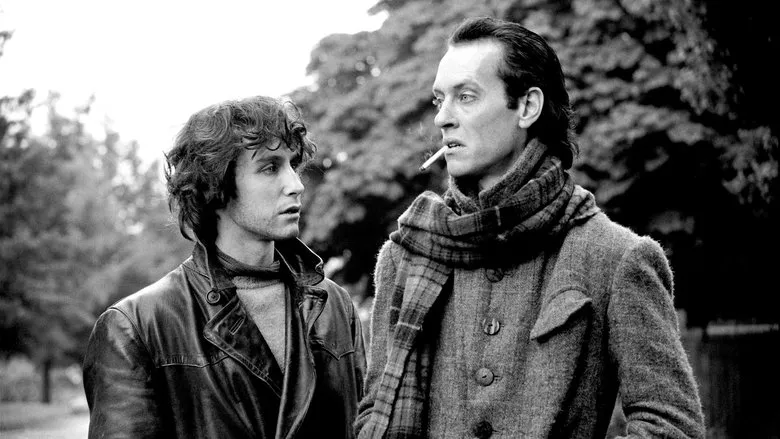
Friday the 13th: Later Unlucky Chapters Arrive on UHD
In a slightly unexpected yet opportunistic move, Arrow Video has suddenly announced two significant UHD releases from the iconic Friday the 13th franchise, specifically focusing on some of the later films in the long-running series. It might seem peculiar to release these particular movies while Scream Factory’s comprehensive Blu-ray box set, covering the entire series, remains readily available, especially since Arrow Video’s releases are also North American distributed. However, the underlying reason is not overly difficult to deduce. The actual rights to these specific two films are held by Warner Bros. It is highly probable that Warner Bros. only granted Scream Factory exclusive Blu-ray rights for these titles, thereby allowing Arrow Video the unique opportunity to license them for a UHD release, mirroring how Kino Lorber previously secured UHD rights for a batch of MGM films that Criterion also held Blu-ray licenses for.
Friday the 13th: Jason Goes to Hell (Adam Marcus, 1993) UHD
The first is the ninth installment in the enduring series, 1993’s Jason Goes to Hell: The Final Friday, which was, as its subtitle suggests, originally envisioned as the decisive conclusion to the franchise. Adam Marcus, at that time a director in his early twenties fresh out of film school, was unexpectedly given the helm of this significant film. However, a combination of inexperience and various production hurdles ultimately led to a rather chaotic and challenging filmmaking experience. While some of the film’s audacious and unique non-official cross-series linkage designs are surprisingly inventive, the final product largely received highly unfavorable reviews. Previously, Scream Factory’s expansive full series Blu-ray box set only restored this film using a 2K scan of the interpositive, and for the accompanying unrated version, they supplemented it with exclusive footage presented from a high-definition digital master. This time, Arrow Video is proudly presenting both the original theatrical cut and the longer unrated version of the film in a brand-new 4K restoration, boasting striking Dolby Vision with HDR10 compatibility and offering both lossless stereo and DTS-HD MA 5.1 dual audio tracks. The impressive array of bonus features adds compelling new interviews to the wealth of content previously included on the Scream Factory release. The theatrical version disc includes insightful new interviews with special effects makeup artist Robert Kurtzman, actress Julie Michaels, and composer Harry Manfredini. The remaining, equally valuable old content includes an introduction to the film by director Adam Marcus and two interviews; a separate interview with the iconic Jason actor Kane Hodder himself; and exclusive television footage augmented with a commentary track by director Adam Marcus. The unrated version disc provides three comprehensive commentary tracks: two invaluable old commentary tracks by the director, one alongside veteran Friday the 13th series expert Peter Bracke, and another with screenwriter Dean Lorey; and a brand-new, scholarly commentary track by esteemed film scholars Michael Felsher and Steve Barton.
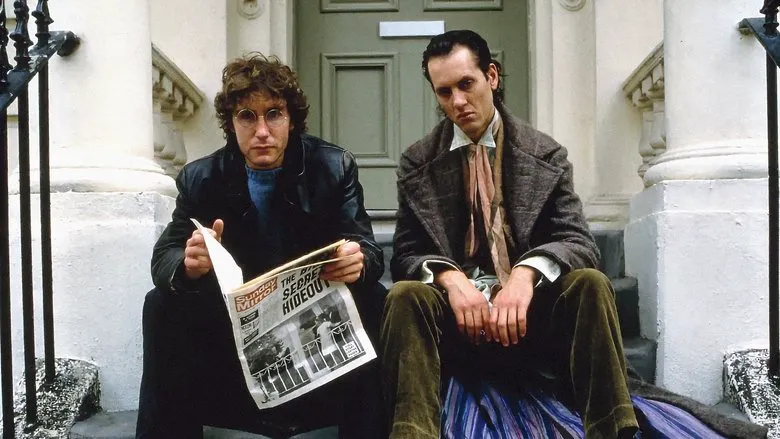
Jason X (James Isaac, 2001) UHD
Following this, Arrow also brings us 2001’s Jason X, taking the iconic slasher into uncharted territory by transplanting the entire setting to a science fiction backdrop, placing Jason Voorhees in a rather unique space environment. This audacious concept, combined with a memorable cameo by director David Cronenberg, has surprisingly garnered significant recognition and affection from many fans. Prior to this, Scream Factory’s earlier box set only presented the film from a 2K resolution scan of the interpositive. This time, Arrow Video is directly upgrading it with a full 4K restoration, presented in glorious Dolby Vision with HDR10 compatibility, and the audio tracks are also robust lossless stereo along with DTS-HD MA 5.1. The newly added bonus features include a compelling commentary track by film scholars Michael Felsher and Steve Barton, and an insightful interview with composer Harry Manfredini. The retained wealth of classic bonus features includes two illuminating commentary tracks: one by Friday the 13th series expert Peter Bracke and screenwriter Todd Farmer, and another by director James Isaac, screenwriter Todd Farmer, and producer Noel Cunningham. Digging deeper, there’s an engaging introduction to the film by actor Kane Hodder himself; a half-hour behind-the-scenes documentary offering a fascinating look at the production; and interviews with screenwriter Todd Farmer as well as actors Kristin Angus and series producer Sean S. Cunningham. The remaining content thoughtfully includes some older featurettes exploring the evolution of the Jason character, various making-of segments, additional cast and crew interviews, and invaluable on-set featurettes, providing a comprehensive historical overview of this cult space-slasher.
The Andromeda Strain (Robert Wise, 1971) UHD Re-release
This month also sees a welcome re-release of Robert Wise’s tense and visually distinctive 1971 science fiction thriller, The Andromeda Strain. This particular film, known for its striking visual design and procedural tension, was originally licensed by Arrow Video in 2019 and released as an exclusive 4K-restored Blu-ray. This time, the release is upgraded to a full UHD, benefiting from Dolby Vision with HDR10 compatibility, and crucially, it meticulously features the original lossless mono audio track, preserving its intended soundstage. The bonus features are a familiar yet valuable batch of